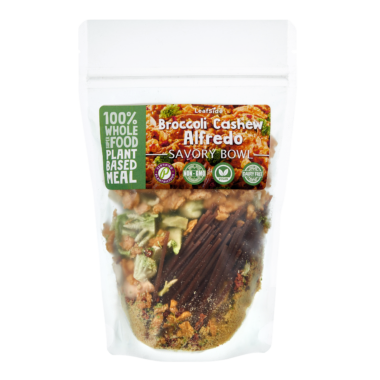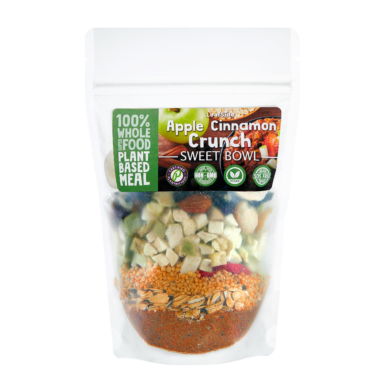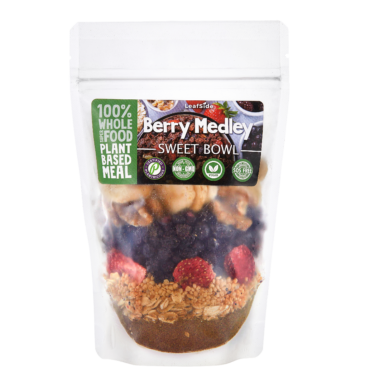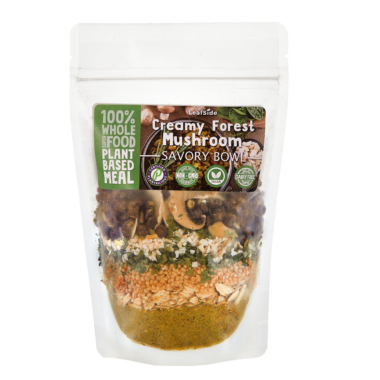Health & Wellness, Updates
LeafSide Health Review, May 2023 🤓🎓
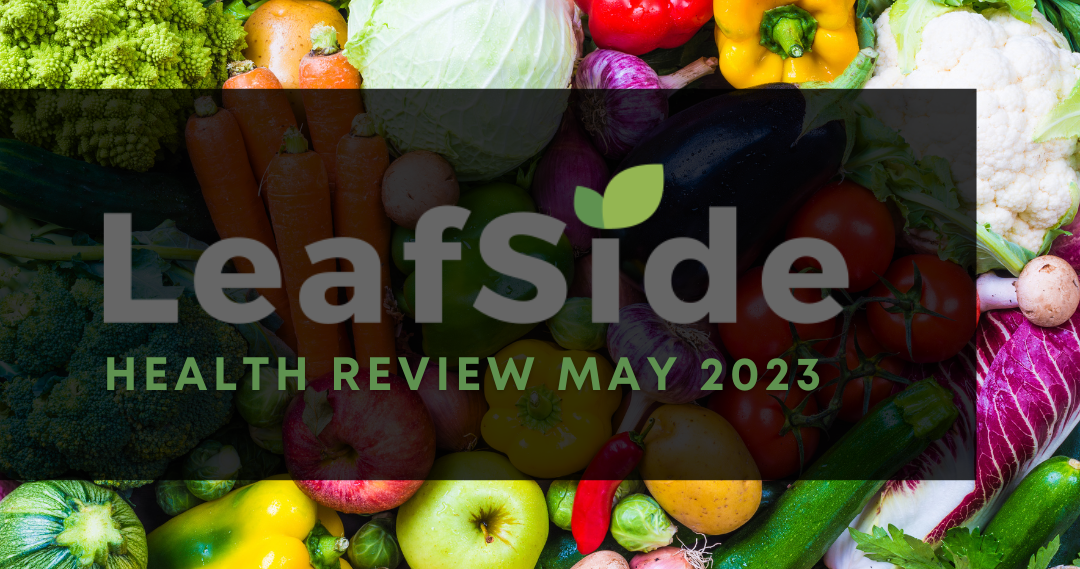
There are days devoted to particular fruits and veggies, but at LeafSide we believe every day is a good day to eat more fruits and vegetables (and beans, whole grains, legumes, nuts, and seeds). That’s why this month’s Health and Wellness Review is full of fantastic reasons to fill your plate with whole food plant-based goodness. 🍽️
From a short-but-detailed dive into why whole foods matter, to fat-blocking tea, to the latest large-scale research on low-carb diets, we’re always on the lookout for practical evidence-based science to help you make the best choices for lifelong thriving. 😎💚
Disclaimer: LeafSide’s content highlights select nutrition, health, and wellness resources based on an experienced appraisal of usefulness, and empirical evidence. The views and opinions of the creators of such external resources are entirely their own and may not reflect those of LeafSide. As usual, the information we share is not individualized medical advice. We encourage readers to do their own research and due diligence before adopting any lifestyle changes shared here or elsewhere.
For Optimal Nutrition: A Tale of Three Diets 🌱
Here at Leafside, we’re all about enjoying more plant-based meals for great health. 🥗 In particular, to get all the evidence-backed benefits of a plant-based diet — like optimal weight, more energy, better mood, sounder sleep — it’s important to eat whole, minimally processed plant foods. Or as Dr. Greger puts it, foods where “nothing bad was added; nothing good was removed.”
Dr. Thomas M. Campbell demonstrates why in this quick video (under 6 minutes) from the T. Colin Campbell Center for Nutrition Studies at Cornell University: Nutrient Profiles of Plant-Based Versus Animal-Based Foods. 🔬
Using representative 500-calorie blends, Dr. Campbell compares the nutritional profiles of three dietary patterns:
- Animal foods (whole milk, chicken, beef, salmon, and eggs) 🐮
- Whole plant foods (mango, peas, broccoli, kale, and oats) 🥬
- Processed plant foods (potato chips, spaghetti, cola, donuts, and Italian dressing) 🥤
Which pattern wins out for your needed nutrition? Here’s the tabular tale of three diets:
|
Animal Foods 🐮 [500 cal blend of milk, chicken, beef, salmon, eggs] |
Whole Plants 🥬 [500 cal blend of mango, peas, broccoli, kale, oats] |
Processed Plants 🥤 [potato chips, spaghetti, cola, donuts, Italian dressing] |
|
| Protein [grams] | 51 | 29 | 6.5 |
| Fat [grams] | 34 | 6 | 21 |
| Carbohydrates [grams] | 8.6 | 97 | 72 |
| Fiber [grams] | 0 | 27 | 1.8 |
| Potassium [milligrams] | 1,200 | 2,600 | 350 |
| Calcium [milligrams] | 250 | 410 | 31 |
| Cholesterol [milligrams] | 410 | 0 | 0 |
As you can see, whole plants come out on top as a low-fat (esp. low saturated fat), high micronutrients, high-fiber option, with ample protein. 👍🏻
In an average 2,000-calorie diet, you’d get 116 grams of protein per day from eating a diverse mix of fruit, legumes, vegetables, leafy greens, and whole grains.🍓🥣 That’s 1.7 grams per kilogram for a 150-pound (68 kg) person, the recommended average for active adults. 💪🏻
At more than twice the potassium, 🍌 a whole food plant-based diet pattern provides potential benefits for cardiovascular health, including lower blood pressure and a reduced risk of cardiovascular disease, kidney stones, and stroke. 🩺
And how about that fiber? Twenty-seven grams from 1 500 cal meal of whole plants is 7 to 12 grams more than the average American gets in an entire day. Multiply that by three meals, and you’re sure to develop a healthy, diverse microbiome to support your overall health. 🦠
The data makes it clear that the form of plants you eat really matters! Whole plants are the best source for maximum nutrition — and they also contain a wide range of anti-inflammatory, antioxidant phytonutrients that aren’t at all found in animal foods, bringing powerful benefits for your health. 🌿
Eating Plant-Based to Beat Chronic Kidney Disease 🥙
Chronic kidney disease affects 15% of U.S. adults and can lead to high blood pressure, nerve damage, fatigue, anemia, and fragile bones as the kidneys lose their ability to filter toxins and waste from the bloodstream. 🤒
In the short video Plant-Based Diet For Treating and Reversing Stage 3 Kidney Disease, Dr. Greger shares a remarkable case study on how a whole food plant-based diet can improve or even reverse this condition. 🥗
The study followed a 69-year-old man with type 2 diabetes, high blood pressure, and stage 3 kidney disease who switched from a diet low in plant foods, to a whole food plant-based diet. In just five months, he:
- Reduced his insulin requirements by more than 50% 💉
- No longer needed five of his 12 medications 💊
- Reduced his blood pressure, blood sugar, and cholesterol ❤️
- Lost almost 50 pounds 🏋🏻♀️
The most surprising result? No more kidney disease! His GFR, a measure of kidney function, increased by 73%, much more than the 12% to 15% seen with weight loss alone. 📉
Although this is just one case study, it’s an amazing example of how dropping animal foods and ultra-processed foods for whole plants, can help dramatically cut the burden of chronic disease. 🏥
For Weight Loss, Put a Little Zing in Your Tea 🍵
Hibiscus, the fruity “zing” that gives red zinger tea its vibrant color, may have profound effects on your metabolism. 🏃🏻♂️ At high doses, this herbal decoction can:
- Reduce cholesterol production ⏬
- Prevent fat accumulation 🧈
- Increase insulin sensitivity 🍨
- Improve cases of non-alcoholic fatty liver disease 👍🏻
But can you get the same benefits from a daily cup of tea? 🍵
In Fat-Blocking Benefits of Hibiscus Tea, Dr. Greger examines a randomized study on a supplement combining hibiscus and lemon verbena, both associated with weight loss. The group that got the herbal blend, equal to about 12 ounces of tea, lost 1 to 2 extra pounds per month, while eating the same calories as the control group! 🍹🏋🏻♀️
But the key to getting the most benefits seems to be whole hibiscus, not supplements.🌸 Extracts aren’t guaranteed to contain all the compounds that may improve metabolism and support a healthy weight, and some compounds may work together in ways that researchers haven’t yet discovered.
Just remember to swish your mouth out after enjoying your cup of red zinger, to rinse the natural acids off your teeth, and protect your enamel. 🦷
Low-Carb Diets and Diabetes Risk: Can Plants Make the Difference? 🌿
When studying the long-term effects of diet and lifestyle on health, researchers can use several study designs:
- Case-control studies compare historical diet and lifestyle data between people with a disease and those without
- Cohort studies compare specific health outcomes to data gathered from large groups of people over time
- Epidemiological studies examine the potential health impacts of diet and lifestyle habits in entire populations
These studies are all observational, meaning that researchers draw conclusions by comparing data with health outcomes. Such observational studies can reveal correlations of varying strength, but generally don’t establish causation. 🚫
To show causation, like eating X causes Y outcome, scientists usually use randomized controlled trials (RCTs), where participants are randomly assigned to either receive an intervention or act as a control group, without knowing which group they’re in — an impossible approach when studying complex dietary patterns, since your eyes, nose, and mouth are generally good at knowing what you’re eating. 🤷🏻♀️
So how do researchers make a strong case for causation in observational studies? By looking for dose-response relationships — where the severity of an outcome increases as participants are exposed to a risk factor in greater amounts, or for longer periods. 📈 The increase is a good indicator that the exposure is responsible for the results.
In this video from MedCram, data from two studies of over 200,000 men and women participating in the Nurses’ Health Study and the Health Professionals Follow-Up Study shows just such a relationship, between long-term low-carb diets and type 2 diabetes. 🍞 People who ate low-carb diets high were 39% more likely to develop the disease and also had an increased risk of dying from it.
What we found most interesting, though, is that people who ate low-carb diets high in plant-based foods like vegetables actually had up to a 15% reduction in diabetes risk and a 24% lower risk of dying. 🥗🥬 Yet another reason to make plants the main attraction, no matter what dietary pattern you follow!
Thank You! 🙌
Thank you for being on the LeafSide, and for choosing food that makes a difference — for you and yours, for the animals, and for our one planet Earth. 🌻 🌎
Please feel free to contact us at any time with your questions or feedback; it’s with your help that we’re making the plant-based revolution happen!


